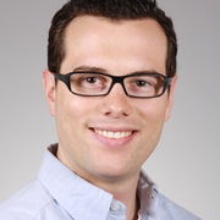The Heidelberg Academy of Sciences and Humanities announced the selection of junior research group leader Alexander Schlaich's work on "Electronic screening using a virtual Thomas-Fermi fluid for predicting wetting and phase transitions of ionic liquids at metal surfaces" for the 2024 Academy Prize. This work, published in Nature Materials and submitted by Christian Holm from the Institute of Computational Physics (University of Stuttgart), has been recognized for its outstanding contribution to the field. The award ceremony is scheduled for June 8, 2024, as part of the Heidelberg Academy of Sciences and Humanities annual celebration at Heidelberg University.
About Alexander Schlaich
After completing his physics studies at the University of Stuttgart, Alexander Schlaich earned his doctorate from Freie Universität Berlin in 2017, focusing on the interaction and friction of polar surfaces, including water at the nanoscale. Following his doctoral studies, Schlaich worked as a postdoctoral researcher at the Laboratoire Interdisciplinaire de Physique in France from 2017 to 2020. Since 2021, he has been leading the Multiscale Materials Modeling research group at the Stuttgart Center for Simulation Science as a junior research group leader within the Cluster of Excellence EXC 2075 for "Data-integrated Simulation Science," in collaboration with the Institute of Computational Physics at the University of Stuttgart.
Abstract
Of relevance to energy storage, electrochemistry and catalysis, ionic and dipolar liquids display unexpected behaviours—especially in confinement. Beyond adsorption, over-screening and crowding effects, experiments have highlighted novel phenomena, such as unconventional screening and the impact of the electronic nature—metallic versus insulating—of the confining surface. Such behaviours, which challenge existing frameworks, highlight the need for tools to fully embrace the properties of confined liquids. Here we introduce a novel approach that involves electronic screening while capturing molecular aspects of interfacial fluids. Although available strategies consider perfect metal or insulator surfaces, we build on the Thomas–Fermi formalism to develop an effective approach that deals with any imperfect metal between these asymptotes. Our approach describes electrostatic interactions within the metal through a ‘virtual’ Thomas–Fermi fluid of charged particles, whose Debye length sets the screening length λ. We show that this method captures the electrostatic interaction decay and electrochemical behaviour on varying λ. By applying this strategy to an ionic liquid, we unveil a wetting transition on switching from insulating to metallic conditions.
https://doi.org/10.1038/s41563-021-01121-0
About the prize
Since its establishment in 1909, the Heidelberg Academy of Sciences and Humanities has transformed into the State Academy of Sciences and Humanities of Baden-Württemberg. It functions as a hub for interdisciplinary collaboration, organizing lectures, events, and joint research ventures that involve both seasoned academics and up-and-coming scholars.
The Academy Prize, introduced by the Association for the Promotion of the Heidelberg Academy of Sciences and Humanities to mark the 75th anniversary of the Heidelberg Academy's founding in 1984, underscores the academy's commitment to fostering talent and promoting scientific progress. This prestigious award is designed to cultivate excellence in research and innovation while supporting the endeavors of early-career researchers.


